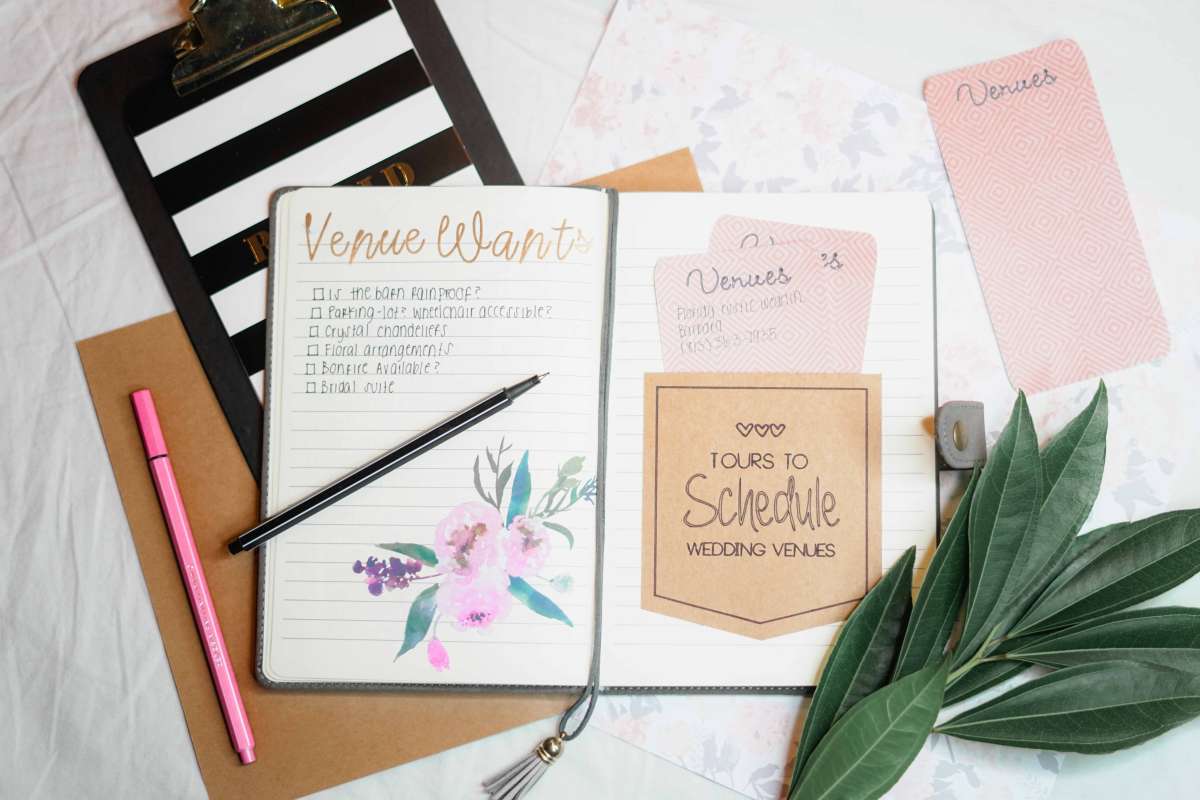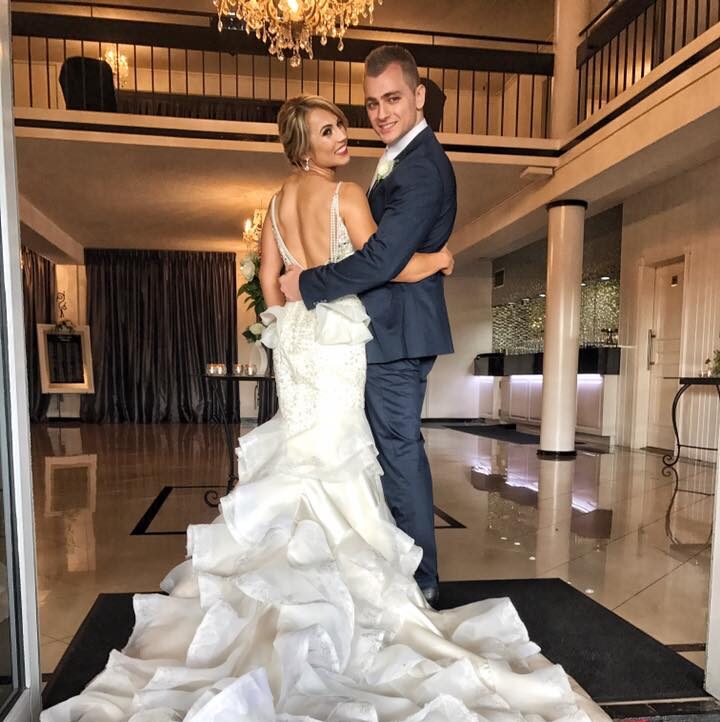Starting wedding planning can feel overwhelming, but Dividing it into doable steps can help make the procedure enjoyable and exciting. Begin by setting a budget, which will guide most of your decisions. Next, envision your ideal wedding day by discussing your priorities with your partner, such as the event’s style, location, and size.
From there, draft a guest list and choose a date, keeping in mind the availability of key venues and vendors. With these foundational elements in place, you can start booking venues, hiring vendors, and sending out invitations, gradually bringing your dream wedding to life.
Let’s Get Straight to the Point
Starting wedding planning can be daunting. Dividing the process into feasible steps can help make it enjoyable. Begin by setting a budget and envisioning your ideal wedding day, discussing priorities with your partner regarding the style, location, and size. Organise your planning tools, create a guest list, and choose a date, keeping in mind venue and vendor availability.
As you move forward, select your wedding party, decide on a theme, and book venues. Use technology to stay organised, seek assistance from professionals or loved ones, and remember to take breaks to maintain balance.
Finally, focus on the details like invitations, rings, and outfits while planning pre-wedding and post-wedding events to enhance the experience. With careful organisation and clear communication, wedding planning can be a smooth and enjoyable journey, culminating in a beautiful and memorable day.
Envision Your Dream Wedding
Before diving into the logistics, take time to imagine your ideal wedding. Consider the following aspects:
- Location: Do you prefer a local venue or a destination wedding?
- Theme: Are you leaning towards a traditional ceremony, a modern affair, or a themed event like a “Game of Thrones” wedding?
- Size: Will this be a small party or a grand celebration?
- Style: Are you thinking of a rustic, vintage, or contemporary style?
- Budget: How much are you willing to spend?
Pro Tip: Schedule a brainstorming session with your partner. Bring at least two photos representing your vision for the location, theme, colours, food, and activities. This will ensure that you are both on the same page.
Organise Your Wedding Planning Tools
Organising is key to successful wedding planning. Start by setting up a system that works for you:
- Checklists: Use a checklist to keep track of tasks. Begin with broad categories and narrow them down as you progress.
- Spreadsheets: Create spreadsheets for your guest list, budget, and vendor contacts.
Set Your Wedding Budget
Establishing a budget is crucial. Here’s how you can approach it:
- Discuss Finances: Have an open conversation about how much you can realistically spend.
- Parental Contributions: If parents are contributing, discuss their expectations early.
- Contingency Fund: Allocate 5-10% of your budget for unexpected expenses.
Pro Tip: Use a detailed spreadsheet to track all expenses and potential costs.
Seek Assistance For Your Wedding
Wedding planning is not a solo endeavour. You will need help:
- Employ a Wedding Coordinator: Should finances permit, a wedding planner can manage most details.
- Delegate to Friends and Family: If a planner is out of budget, delegate tasks to trusted friends or family members.
- Utilise Technology: Use wedding planning apps and online resources to stay organised.
Choose A Wedding Date
Selecting the right date is pivotal:
- Check Availability: If you have a specific venue in mind, confirm its availability before setting a date.
- Consider the Season: Think about the season and how it aligns with your theme and location.
- Weekday vs. Weekend: Consider a weekday wedding if you’re on a budget.
Pro Tip: Consider three potential dates to compare venue availability and costs.
Build Your Wedding Guest List
Your guest list will dictate many aspects of your wedding, including the venue size and budget. Create a rough draft first, then edit it as you go:
- Prioritise: List your must-have guests first.
- Consider Plus-Ones: Decide if you will allow guests to bring a plus-one.
- Children: Determine if your wedding will be child-friendly.
Select Your Wedding Party
Choosing your wedding party is a personal decision:
- Close Friends and Family: Select people close to you and who you can rely on.
- Communicate Expectations: Let them know what their role will entail.
Pro Tip: Use a decision flow chart if you need help with who to choose.
Choose Your Wedding Ceremony Location
The ceremony location often sets the tone for the entire wedding:
- Venue Availability: Ensure your preferred date is available.
- Logistics: Consider guest accessibility and parking.
- Venue Rules: Check for any restrictions, such as noise levels or decoration limitations.
Choose Your Wedding Venue
The area where your guests will spend the reception the majority of their time:
- Budget: Verify that the location will not break the bank.
- Capacity: Ensure it can accommodate your guest list.
- Catering Options: Some venues offer in-house catering, while others allow outside vendors.
Pro Tip: Visit multiple venues to compare their offerings and availability.
Decide On A Wedding Theme And Decor
Your theme will guide your decoration choices:
- Romantic: Think of soft colours, large floral arrangements, and intimate lighting.
- Rustic: Use natural elements like wood and greenery.
- Formal: Opt for black-tie attire, elegant table settings, and a grand venue.
Pro Tip: Let the venue’s architecture and style influence your decor choices.
Choose Your Wedding Invitations
Your invitations set the tone for the event:
- Design: Match the design to your wedding theme.
- Wording: Use formal and casual language for a traditional or laid-back wedding.
- RSVP: Include RSVP instructions.
Pro Tip: Order your invitations early to avoid last-minute stress.
Plan Your Wedding Outfit
Your attire should reflect your style:
- Bride: Consider comfort and how the dress fits with the theme.
- Groom: Whether it’s a suit or traditional attire, ensure it complements the bride’s outfit.
- Modifications: Plan fittings far in advance to enable time for adjustments.
Pro Tip: Allow room for changes, as preferences might evolve as the wedding day approaches.
Choose Your Wedding Rings
Wedding rings symbolise your commitment:
- Style: Whether matching or contrasting, choose rings that reflect your taste.
- Materials: Consider the durability and care requirements of different metals.
Pro Tip: A warranty can be worthwhile, particularly for rings with intricate designs or settings.
Select Your Wedding Menu
Food and drink are key components of your wedding:
- Catering: Choose a menu that caters to all dietary requirements.
- Tasting: Schedule a tasting session to finalise your choices.
Pro Tip: Consider a mix of serving styles, such as a seated dinner with buffet-style dessert options.
Create A Wedding Registry
Your registry should include items that will be useful to you as a couple:
- Variety: Offer options across different price ranges.
- Practicality: Focus on items you genuinely need and will use.
Pro Tip: Consider a honeymoon fund or charity donation option in your registry.
Plan Pre-Wedding And Post-Wedding Events
These events add to the wedding experience:
- Rehearsal Dinner: A chance for close family and friends to gather before the big day.
- Bachelor/Bachelorette Parties: Let your wedding party plan these events, but ensure they align with your comfort level.
- Morning-After Brunch: A nice way to say farewell to out-of-town guests.
Plan Some Non-Wedding Activities
Balance wedding planning with regular life:
- Take Breaks: Set aside time for non-wedding activities to keep things in perspective.
- Counselling: Pre-marital counselling can help manage stress and strengthen your relationship.
Pro Tip: Plan regular date nights with nothing to do with wedding planning.
Planning a wedding can be a complex process, but it can also be enjoyable with careful organisation and clear communication. Use this guide to stay on track, and remember to savour each moment as you prepare for one of the most important days of your life.
Consider hiring a wedding planner to help manage the details for additional support. Refer to this guide to ensure everything is noticed. Enjoy the process, and look forward to a beautiful and memorable wedding day.




